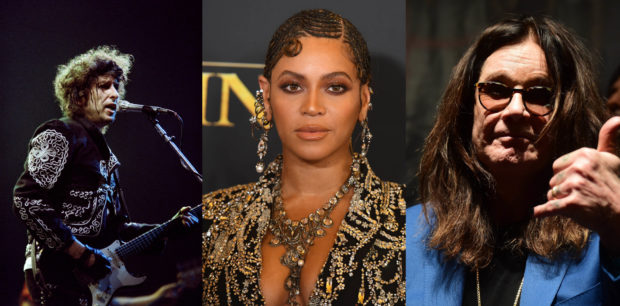Whether you prefer the music of Mick Jagger or Maroon 5 could depend on their personality, and your own

Whether you’re a Bob Dylan, Beyoncé or Black Sabbath fan could depend on whether you think their personality is like your own. Image: AFP/ Bertrand Guay
New research has found that while we may think we pick a favorite band or singer because we like their music, it could also be because we’re attracted to their personality.
To investigate what factors affect why we like the music we do, psychologists at Bar-Ilan University, Israel and Columbia Business School, United States, carried out three separate studies that together included 86,570 people.
The researchers analyzed the public personas of 50 of the most famous musicians in the Western world — including Paul McCartney, Bob Dylan, Elton John, Whitney Houston, The Rolling Stones, Beyoncé, Coldplay, Maroon 5, Taylor Swift and Ozzy Osbourne — using reports from the musicians’ fans and predictions of their personality by machine learning using the artist’s lyrics.
The findings, published online in the Journal of Personality and Social Psychology, showed that the personality of the musicians was a big factor in the participants’ musical preferences. Moreover, participants tended to prefer the music of people whose public personas they thought were like their own personalities, a phenomenon which the researchers call the “self-congruity effect of music.”
The researchers point out that they only looked at the public persona of the musicians, they didn’t measure their actual personalities. However, they still add that the findings show how musical preferences can be influenced by social, psychological and group dynamics. The authors add that music can give people a sense of pride and a place in the world, and in fact, explain that music evolved as a way for groups to communicate with one another and decide whether or not to work together.
Study author and professional musician Dr. David Greenberg commented on the findings saying, “In today’s world, where social divisions are increasing, our studies are showing us how music can be a common denominator to bring people together.”
Dr. H. Andrew Schwartz, also added that, “The findings can be applied to situations involving mental health. For example, in times of stress and uncertainty, listeners can seek music of artists with similar personalities to themselves and feel understood and a sense of connectedness.” CL
RELATED STORIES:
Many of the same personality traits and behaviors are valued all around the world, says new study
Why are some people drawn to fictional villains?